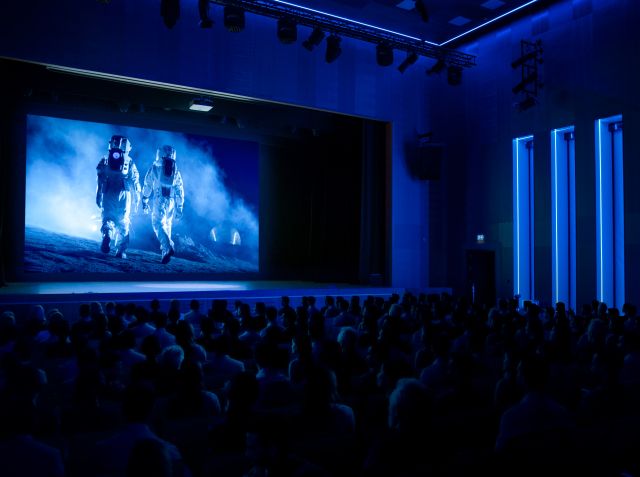Eight Films to Reflect on the Challenges of Contemporary Society: Scienza al Cinema 2024 Kicks Off

Once again, in 2024, Cinema Perla will host "Scienza al Cinema", the film series organised as part of the activities of the Scientific Degree Plan of the University of Bologna, which this year reaches its 8th edition. Running from Monday, 14 October to Monday, 9 December, there will be eight screenings, with free admission and expert commentary. Starting at 8:30 PM, the films will introduce viewers to current scientific topics of collective interest.
The session on 14 October will focus on Statistics with the film “In Time”, a science fiction work that imagines a dystopian and extreme solution to overpopulation, demographic ageing, and the wealth distribution gap. These issues, which plague society, will be discussed after the screening by Prof. Francesco Scalone from the Department of Statistical Sciences "Paolo Fortunati", an expert in historical and contemporary demography.
Biology and biotechnology will be the focus of the 21 October event with the documentary "More Than Honey”, centred on the life of bees. The discussion will address their survival in today's world, which is subject to profound climate change— a topic that is particularly relevant to Italy, and especially Emilia-Romagna, where the flood just over a year ago disrupted the region's beekeeping industry. Prof. Fabio Sgolastra from the Department of Agricultural and Food Sciences, an expert in bee ecology and conservation in agroecosystems, will provide commentary on the subject and the pollination service.
What impact do the internet, artificial intelligence, and the Internet of Things have on human life? This will be the subject of the 28 October event, focused on computer science. The docufilm “Lo and Behold: Reveries of the Connected World” will introduce the topic, which will then be explored further by Federico Montori, a researcher from the Department of Computer Science and Engineering.
The screening of "Blood Diamond” on 4 November will spark discussion on geology. Under the guidance of Prof. Giorgio Gasparotto from the Department of Biological, Geological, and Environmental Sciences, the audience will analyse the current scenarios and possible future prospects regarding the extraction of precious stones and rare earth elements, along with the related human rights implications.
On 11 November, the spotlight will be on chemistry, with “Smetto quando voglio – Masterclass”. Prof. Natalia Calonghi and researcher Giovanna Farruggia from the Department of Pharmacy and Biotechnology will comment on the adventures of a group of researchers, this time collaborating with the police in the search for new smart drugs in exchange for their freedom.
Physics will take centre stage on 18 November with the movie “Copenhagen”, providing an opportunity to discuss the relationship between ethics, science, and society, ahead of the centenary of the formulation of quantum mechanics, which will take place in 2025, a year declared by UNESCO as the International Year of Quantum Science and Technology. After the screening, Prof. Gianni Zanarini, known for his studies on science, cinema, and theatre, will offer further insights.
On 25 November, mathematics will be the focus with "The Margherita Theorem”, a reflection on research and failure as part of personal and social growth, which can pave the way for new, significant achievements. Comments will follow from Alessandro Zaccagnini, a professor of Mathematical Analysis at the University of Parma, and Giacomo Manzoli, a professor of Cinema, Photography, and Television in the Department of Arts at the University of Bologna.
A focus on Natural and Environmental Sciences will close the series on 9 December: the documentary “The Salt of the Earth” will open the audience’s eyes to the splendour of the world and the irrationality of human behaviour, which threatens to destroy it, by analysing the relationship between nature, society, and climate change. The discussion will be led by Prof. Beatrice Maria Sole Giambastiani from the Department of Biological, Geological, and Environmental Sciences.






